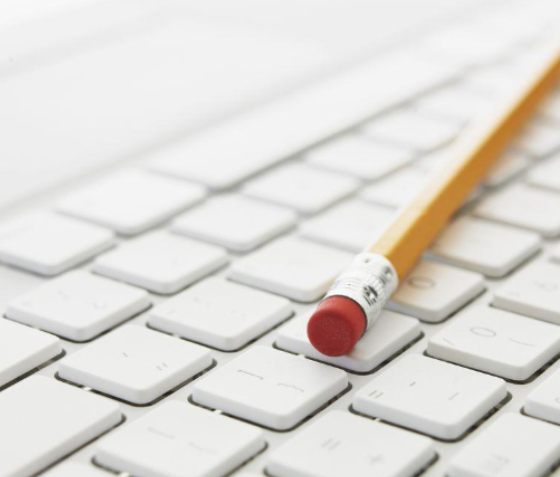Opinion: Millions of people play pickleball. Could it be the thing that reunites us?
- Oops!Something went wrong.Please try again later.

“Do you think they were Republicans?” a friend asked. We had just finished playing two hours of pickleball, America’s fastest-growing sport, according to The Economist.
Sixteen men and women, ranging in age from 30-somethings to at least one reasonably fit Baby Boomer (me), had gathered for pick-up games on makeshift courts next to an elementary school — a handful of the 4.8 million Americans who now play the game.
When I repeated the question to another player, a liberal friend around my age, his response gave me hope in this era of political discord: “I’m not sure, but a lot of guys I used to play paddle tennis with, from this neck of the woods, are. Some were in law enforcement, some Trump supporters, a lot of gun owners. But, hey, they were great guys, fun to be with.”
Is it possible that pickleball could help unify the nation at a time when the leaders of our mainstream parties have utterly failed to do so?
The question might not be as silly as it sounds. In 1995, Robert Putnam published “Bowling Alone: America’s Declining Social Capital” in the Journal of Democracy. His thesis, which led to his best-selling 2000 book titled “Bowling Alone: The Collapse and Revival of American Community,” was that the country’s social connectedness and civil engagement had eroded significantly, as evidenced by the decline of organizations such as church groups, labor unions, fraternal orders, and the Boy Scouts. The causes: changes in work patterns, two-career families, suburban life, television, and computers, among other factors.
“The most whimsical yet discomfiting bit of evidence of social disengagement in contemporary America,” wrote Putnam, “is this: more Americans are bowling today than ever before, But bowling in organized leagues has plummeted in the last decade or so.” Between 1980 and 1993, he reported, the total number of bowlers increased by 10% while league bowling decreased by 40%.
Putnam didn’t ignore more conventional evidence such as the dramatic decline in voter turnout in national elections, by nearly 25%, from the early 1960s to 1990. But he nevertheless perceived significance “in the social interaction and even occasionally civic conversations over beer and pizza that solo bowlers forgo. Whether or not bowling beats balloting in the eyes of most Americans, bowling teams illustrate yet another vanishing form of social capital.”
Might pickleball help reverse that trend? A summertime pickleball group I joined on Cape Cod concludes nearly every week with a BYO cocktail hour. Another in Baltimore, where I also live, holds a round-robin “social” every Saturday evening, packed with 50 or more players of all ages and skill levels. I’ve played with excellent athletes over 70 as well as fleet-footed teens; gay men and women; Black, Asian, and white participants; lifelong racquet players and rank beginners — and, yes, Republicans and Democrats.
Most of us play doubles in “drop-in” settings, where convention holds that after a game to 11, the winning duo splits up, which often results in throwing strangers together to compete in the next round, promoting a form of instant teamwork, conversation, and friendship.
Such social interactions only seem to have gotten less common since 2000, especially with the Internet enabling isolation. However, “For all its troubles, our civic life is still full of the potential for renewal," argued Alexandra Hudson, in “Bowling Alone at Twenty,” a look at Putnam’s work two decades later, in the journal National Affairs.
And what if pickleball could contribute to that renewal? As many have pointed out, we’re a nation of “joiners” where, Tocqueville observed, “Americans of all ages, all conditions, and all dispositions constantly form associations.”
The Villages, Florida’s enormous retirement community, boasts hundreds of pickleball courts, while Instagram stories regularly feature young elite players in endless rallies. Country clubs are converting tennis courts into pickleball courts, which take up roughly a quarter of the space. The equipment is inexpensive, and portable nets can be set up on side streets and driveways. Tournaments are cropping up coast to coast. Gov. Jay Inslee recently signed a bill making pickleball Washington’s official state sport. pickleball publications are sprouting, and some networks, including the Tennis Channel, are starting to broadcast matches.
"If men are to remain civilized or to become so,” Tocqueville wrote, “the art of associating together must grow and improve in the same ratio in which the equality of conditions is increased.”
To that end, I hereby propose the formation of the IBPL — the Inside the Beltway Pickleball League. Think of the possibilities: The Brookings Institution vs. The Heritage Foundation. A “supreme court” match between Kavanagh/Kagan and Thomas/Sotomayor. A mitten-clad Bernie as the line judge for AOC/Cruz vs. McCarthy/Schumer. Let’s make America play together again.
Scott Sherman, a self-professed knee-jerk moderate, lives in S. Wellfleet, MA and Baltimore, MD.
This article originally appeared on Cape Cod Times: Cape Cod Opinion: Could the popular game of pickleball unite us?
